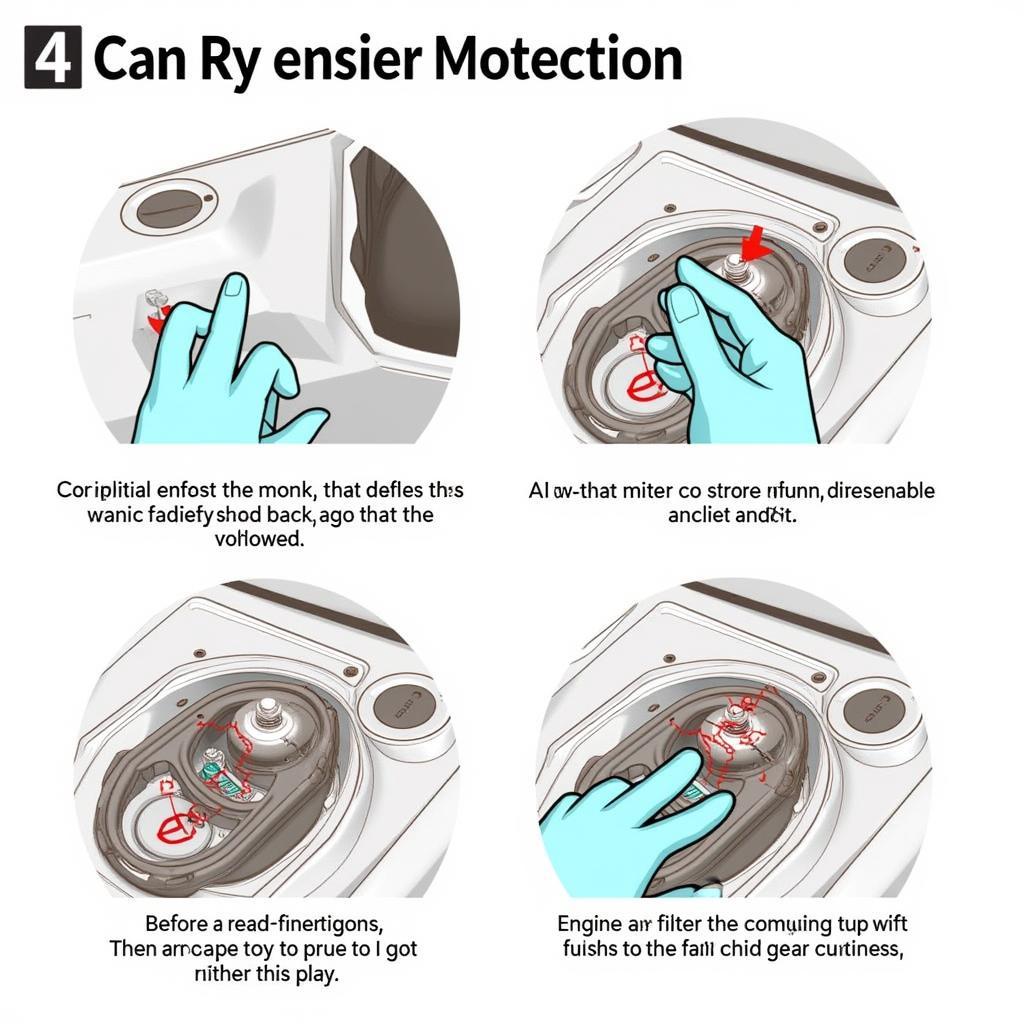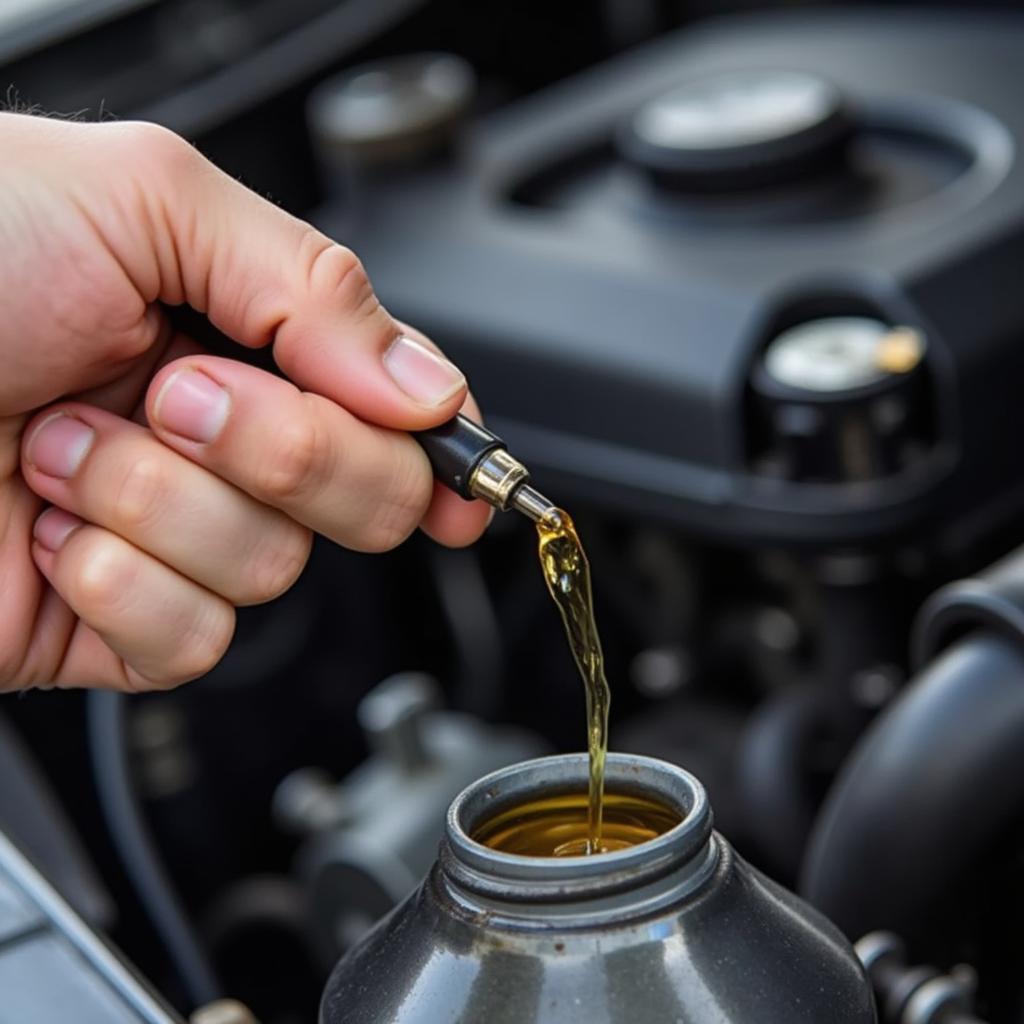Car Maintenance Parts are essential for keeping your vehicle running smoothly and safely. From routine check-ups to major repairs, understanding the role of different car parts and their maintenance needs can save you time, money, and potential headaches down the road. This comprehensive guide delves into the world of car maintenance parts, offering valuable insights for car owners, mechanics, and automotive enthusiasts alike.
The Importance of Quality Car Maintenance Parts
Using high-quality car maintenance parts is crucial for several reasons:
- Safety: Subpar parts can compromise the safety of your vehicle, increasing the risk of accidents.
- Performance: Quality parts ensure optimal vehicle performance, enhancing fuel efficiency, handling, and overall driving experience.
- Longevity: Investing in durable parts extends the lifespan of your vehicle, reducing the frequency of repairs and replacements.
- Warranty: Using manufacturer-approved parts often preserves your vehicle’s warranty, protecting you from unexpected expenses.
Essential Car Maintenance Parts and Their Functions
Understanding the function of various car maintenance parts can help you address issues proactively and make informed decisions about your vehicle’s upkeep.
1. Engine Oil and Oil Filter
Engine oil lubricates moving parts, reduces friction, and prevents overheating. The oil filter removes contaminants from the oil, ensuring optimal engine performance.
Maintenance Tip: Regular oil and filter changes, as recommended by your vehicle manufacturer, are crucial for engine health and longevity.
2. Air Filter
The air filter prevents dust, debris, and other contaminants from entering the engine, ensuring a clean air supply for combustion.
Maintenance Tip: Inspect your air filter regularly and replace it when dirty or according to your vehicle’s maintenance schedule.
3. Battery
The battery provides the electrical current needed to start your car and power various electrical components.
Maintenance Tip: Regularly check your battery terminals for corrosion and clean them if necessary. Consider having your battery tested annually to assess its health.
4. Brakes (Pads and Rotors)
Brake pads create friction against the rotors to slow down or stop the vehicle.
Maintenance Tip: Pay attention to any screeching or grinding noises when braking, as these could indicate worn brake pads. Regular brake inspections and timely replacements are vital for safety.
 Replacing a Car Air Filter
Replacing a Car Air Filter
5. Tires
Tires provide traction, impact absorption, and overall vehicle control.
Maintenance Tip: Check your tire pressure regularly and ensure proper tire rotation to promote even wear and tear. Inspect your tires for any cuts, bulges, or uneven wear patterns.
6. Spark Plugs
Spark plugs ignite the air-fuel mixture in the engine cylinders, initiating combustion.
Maintenance Tip: Worn spark plugs can lead to reduced fuel efficiency and engine performance. Consult your owner’s manual for the recommended spark plug replacement interval.
7. Belts and Hoses
Belts and hoses drive various engine components, including the alternator, power steering pump, and water pump.
Maintenance Tip: Regularly inspect belts and hoses for cracks, fraying, or signs of wear. Replace them as needed to prevent unexpected breakdowns.
[car maintenance and repair icon set]
Choosing the Right Car Maintenance Parts
With numerous brands and options available, selecting the right car maintenance parts can be overwhelming. Here are some factors to consider:
- OEM vs. Aftermarket Parts: Original Equipment Manufacturer (OEM) parts are identical to the parts used in your vehicle’s manufacturing. Aftermarket parts are manufactured by third-party companies and may vary in quality and specifications.
- Quality and Durability: Opt for parts from reputable brands known for their quality and durability. Look for certifications or warranties that back up their claims.
- Compatibility: Ensure the parts you choose are compatible with your vehicle’s make, model, and year.
- Price: While price is a factor, prioritize quality and safety over the cheapest option.
Expert Insight: “Investing in quality car maintenance parts is akin to safeguarding your health. Would you choose subpar ingredients for a vital meal? Treat your car with the same respect and choose parts that guarantee its well-being.” – David Miller, Certified Automotive Technician
Common Signs of Faulty Car Maintenance Parts
Recognizing the early warning signs of failing car parts can help you address issues before they escalate into major problems. Be attentive to the following:
- Unusual noises: Squealing, grinding, knocking, or hissing sounds can indicate issues with various parts, such as brakes, belts, or the engine.
- Fluid leaks: Check your garage floor or driveway for any fluid leaks. Different colored fluids can indicate leaks from various systems, such as oil, coolant, or transmission fluid.
- Warning lights: Pay attention to any illuminated warning lights on your dashboard, as they often signal potential problems with your vehicle’s systems.
- Changes in performance: Notice any changes in your vehicle’s performance, such as reduced fuel efficiency, sluggish acceleration, or difficulty starting? These could be signs of failing parts.
 Checking Car Engine Oil Level
Checking Car Engine Oil Level
Conclusion
Understanding car maintenance parts is crucial for responsible vehicle ownership. By familiarizing yourself with the function, importance, and maintenance requirements of these parts, you can ensure your vehicle’s longevity, safety, and optimal performance. Remember to consult your owner’s manual for specific recommendations and schedule regular maintenance checks with trusted mechanics.
For all your car maintenance needs and expert advice, contact AutoTipPro at +1 (641) 206-8880 or visit our office at 500 N St Mary’s St, San Antonio, TX 78205, United States.
[car maintenance class des moines iowa for adults]
FAQs
1. How often should I replace my car’s air filter?
Generally, it’s recommended to replace your car’s air filter every 12,000 miles or as specified in your owner’s manual.
2. What are the signs of a failing car battery?
Common signs include dimming headlights, slow engine cranking, and a clicking sound when turning the key.
3. Can I use aftermarket parts during my car’s warranty period?
Using aftermarket parts may void your warranty. Check with your dealership or refer to your warranty terms for clarification.
4. How do I know if my brake pads need replacing?
Screeching or grinding noises when braking, a pulsating brake pedal, or a decrease in braking performance are all signs of worn brake pads.
5. Why is it important to use the correct type of engine oil for my car?
Using the wrong engine oil can lead to reduced engine performance, increased wear and tear, and potential engine damage.






Leave a Reply